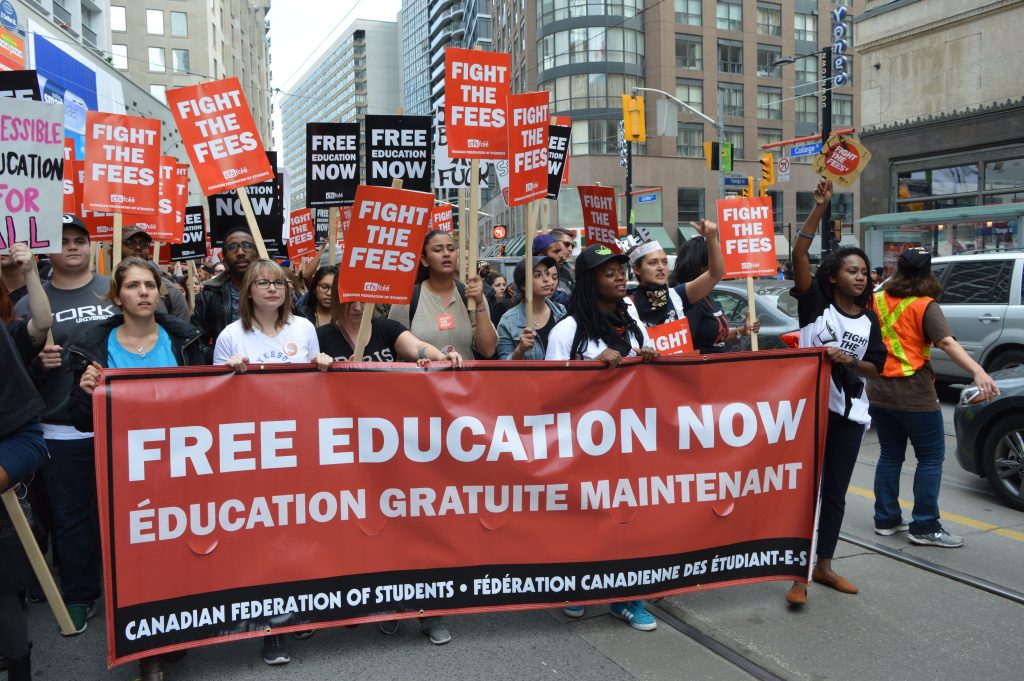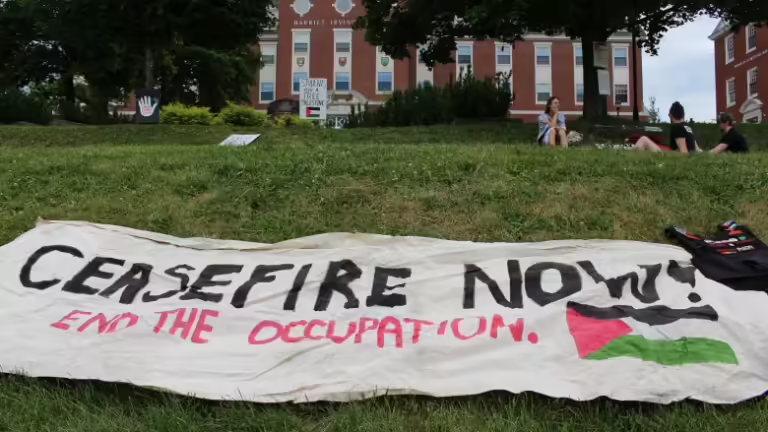A letter written by a former St. Thomas University campus leader about his position as a high-income student on universal free tuition has sparked backlash.
Philippe Ferland, who served as president of the St. Thomas University Students’ Union in 2017-18, wrote about his privilege and viewpoint on the issue in a letter to the editor published in The Aquinian on Monday.
In the letter, Ferland writes about how he had “filet mignon” and “Armani clothing” growing up and received about $40,000 in scholarship funds throughout his five-year undergraduate degree. He said his parents therefore had no need for his education fund and spent it. “All this money I was making was pure profit.”
While most of the letter focuses on explaining his wealth, he briefly argues that universal free tuition primarily provides high-income students with more money.
“So, universal free tuition to me, I think, would be a neat investment on the stock market. I like to grow my assets,” he wrote.
Ferland advocates for a needs-based approach instead.
Brianna Workman, the incumbent STUSU president, said the union was “shocked” when they read the letter and had no prior knowledge of it before publication.
“We felt it wasn’t a productive contribution,” she said. “And because this is a personal topic for so many students, it was insensitive to those who are struggling every day to afford to be in postsecondary.”
The Student Union posted a statement on social media responding to the piece to make clear the current executive does not consider this the best way to engage in dialogue around the issue.
Many students are criticizing the lack of substantial policy discussion in the piece. Others denounced how Ferland accepted substantial scholarships funds, despite his well-off financial situation.
“It’s not the argument against free tuition that’s the worst part (though it’s awful); it’s that you’re freely and unapologetically admitting to taking that quantity of money which could have funded people who needed it to continue their education. It’s deplorable,” a commenter wrote.
Ferland, now a graduate student at Carleton University, told The Brunswickan on Wednesday his letter was a satirical attempt to question whether policies on tuition relief should include people with financial privilege.
He said his point was that policies should be equitable and support students who need the help.
“It’s clear to me that my attempt at satire came off as chauvinistic, abrasive and insensitive, and for that I’m truly sorry,” Ferland said. “I hoped this piece could be a way to start a dialogue about education and access, but it’s clear I missed the mark.”
The controversy follows a growing debate on the St. Thomas campus around universal free tuition, which began after two students, fourth-year Ariel Ottens and third-year Naomi Gullison, brought a letter to the Student Representative Council on Feb. 10. They also started circulating a petition demanding that the union leave the New Brunswick Student Alliance and the Canadian Alliance of Student Associations. It has gathered 170 signatures, according to one the organizers.

Chalk messages around free tuition have appeared on the sides of campus buildings.
Workman, who is also chair of the New Brunswick Student Alliance, said there’s no evidence to show universality improves access to postsecondary education. She said it makes most sense to relieve barriers by concentrating on those with the fewest means.
“For the students who rightfully found Ferland’s letter frustrating and insensitive, I would encourage them to consider why it would be better to move from targeted tuition support for those who need it the most, to universal free tuition – which gives a tuition subsidy to students in Ferland’s precise situation,” Workman said.
New Brunswick currently offers a free tuition program for students from low-income families and tuition relief for the middle class.
Workman said those programs are a start, but need to be expanded along with a more effective debt relief program to address the variety of costs that come with postsecondary education.
“Let’s continue to move forward by addressing the needs of the students who are still struggling, rather than providing free tuition to those who aren’t,” she said.




